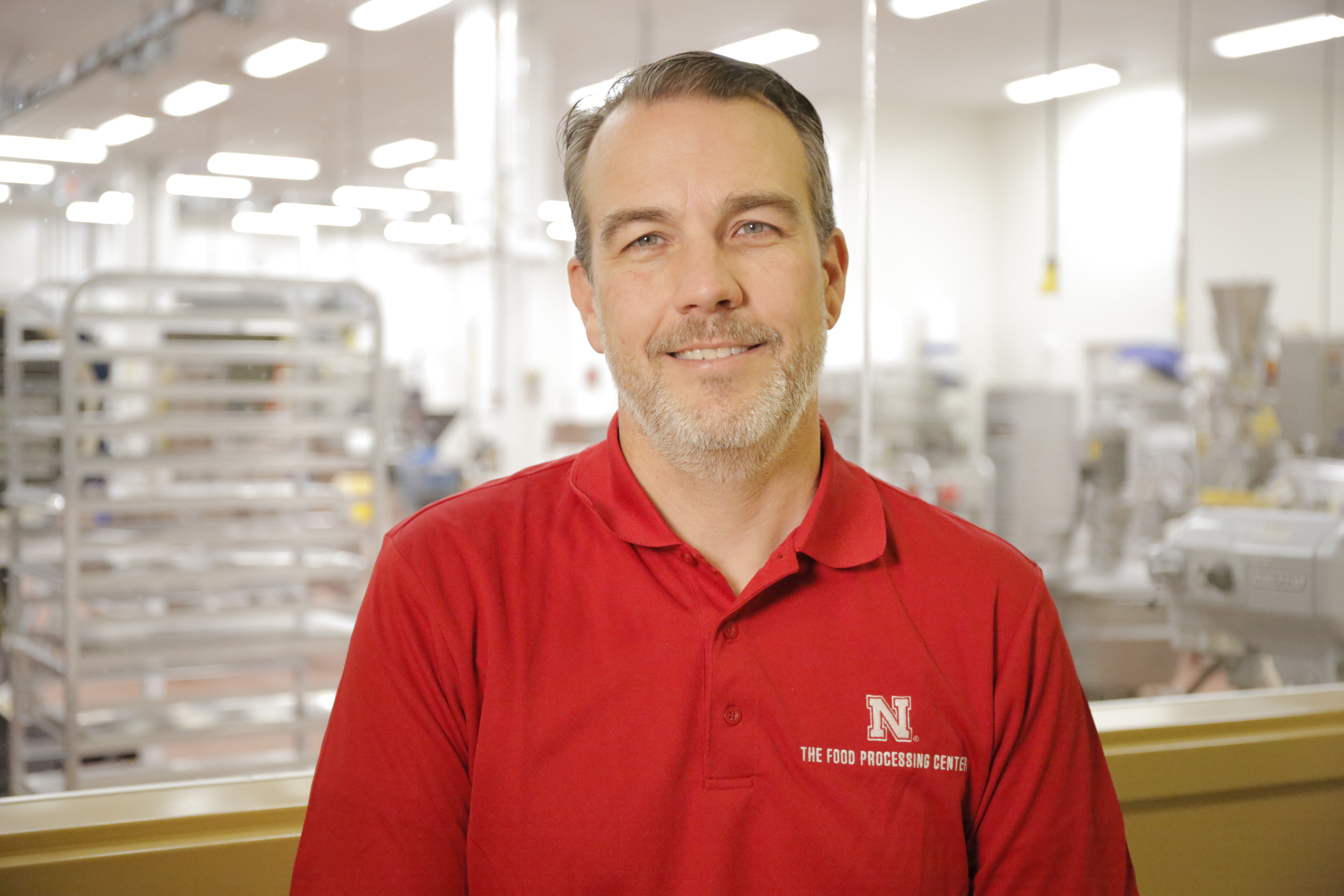
Nebraska’s Economy is Fueled by Food
The Role of the Food Processing Center

The Food Processing Center at the University of Nebraska–Lincoln offers professional development services, workshops, and expert guidance for food companies across the state of Nebraska.
“The main purpose of the Food Processing Center is to advance the food industry,” said Terry Howell, executive director of the Food Processing Center. “It is the people's doorway to food production in Nebraska and we exist to serve as a resource for people in this state.”
Established in 1983, the center serves as a consultancy for people who want information or require services pertaining to the food industry. Specifically, Howell said the center offers expertise in the processing, production, and preservation of food. This is especially helpful for those who want to get into, or those who are already profiting from, the food business.
The center benefits the state of Nebraska as it supports food businesses by sharing food testing and formula development expertise. Specifically, Howell said companies and entrepreneurs can use the center to test food products and formulations before going into mass production.
Ultimately, the center provides a resource that can help new businesses grow, or existing businesses thrive and expand, in the food industry. This helps create successful businesses in Nebraska, which generates more revenue within state borders.
The National Food Entrepreneur Program
The National Food Entrepreneur Program offered through the Food Processing Center is dedicated to assisting emergent food industry entrepreneurs.
The National Food Entrepreneur Program is a two-part program consisting of the Recipe to Reality seminar and the Product to Profit service.
Howell said the Recipe to Reality seminar is a one-day seminar where entrepreneurs learn the fundamentals of starting a food business. Participants learn of challenges of what one might encounter when starting a food business and whether a food business is a realistic choice.
The Product to Profit program is for participants wanting to launch their own food business. Howell said this service includes experts who tailor comprehensive assistance to the entrepreneur’s business venture. This assistance includes business development, product and process development, label and packaging development, regulatory compliance, product pricing, processing facility location, promotional tools, and strategy.
“If we can help Nebraska-based businesses get off the ground and reach their next goals, build the economy within the state, we feel like we are doing our job well,” Howell said.
For more information regarding The National Food Entrepreneur Program visit https://fpc.unl.edu/nfep
Professional Development at the Food Processing Center
With a better educated workforce, the food industry can thrive, thus raising revenue across the state. For people interested in working in the food industry, the Food Processing Center also offers a number of professional development services.
Food Processing Management Online Certificate Program
This program focuses on advancing productivity, efficiency, or overall performance. Howell said the “Food Processing Management Certificate” is a non-academic program designed for those working in many roles the food industry seeking to gain specialized knowledge in food processing management. It is ideal for people without a background in food science to help close the gaps in their knowledge.
Extrusion Workshop
The Extrusion Workshop is a hands-on, introductory-level learning opportunity. Experts from within the FPC and from external companies provide an overview of the science and then participants learn by operating the equipment in the pilot plant and evaluating its products. Howell said this workshop attracts people from all over the world because it is a critical technology to food processing and Nebraska is one of the few places that has a pilot-scale extruder.
HACCP Workshop
This workshop explores the seven principles of Hazard Analysis & Critical Control Points (HACCP) system. Howell said this course is a preventive approach to foodborne hazards and the training is for meant poultry processors, food processors, and food service operators. Upon completion of the course, all participants earn a certificate with the official seal of International HACCP Alliance.
The services by FPC staff and faculty, along with the workshops, provide Nebraskans and others in the region tools to grow their businesses.
"The more that the center can be used to help transform the value of agricultural products grown within the state borders, the better and the more useful the center becomes,” Howell said.
For more information on the variety of professional development services provided by the food processing center, visit fpc.unl.edu/professional_development.
Student Gain at the Food Processing Center
The Food Processing Center also plays a role in educating students, who will continue to build, engineer, and revitalize Nebraska’s economy.
Howell said students can partake in experiential learning with the center, such as assisting staff members with projects requested by its client food companies, to receive hands on learning.
The UNL dairy plant is one source of those opportunities. The plant produces ice cream and cheese sold on campus at the UNL Dairy Store. Student workers are able to experience almost every aspect of food processing by working at the dairy plant: production, quality control, food safety practices, sanitation practices, and even occasional product development when new flavors are needed or are improved.
The FPC employs about a dozen students per semester to work in these experiential learning roles. In addition to the dairy plant, students work in the pilot plant assisting in product testing, product development assisting in projects for client companies, and in the sensory lab to help run tests for clients.
Students are cross-trained in the various areas and given the opportunity to explore what they are passionate about in food science.
“When students graduate, they will be highly prepared and ready to enter the workforce for the food industry,” Howell said.
For more information on student opportunities, visit https://fpc.unl.edu/fpc-student-workers